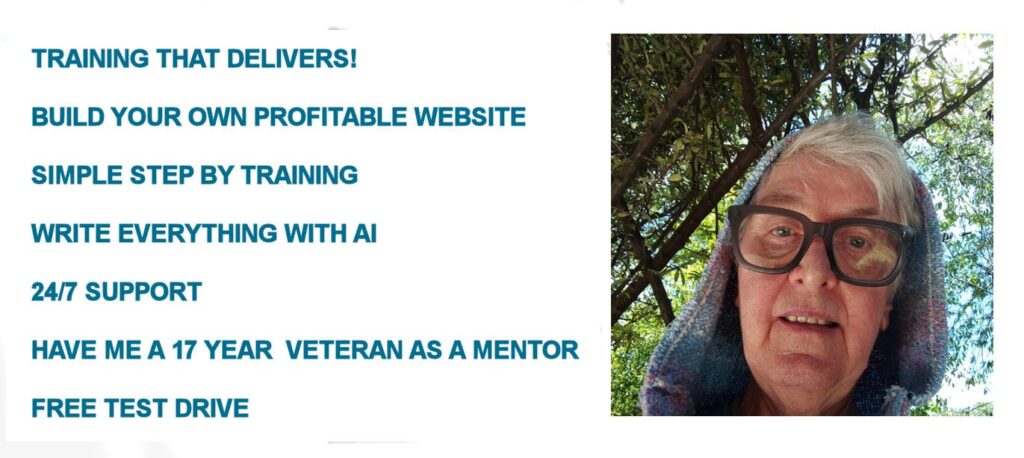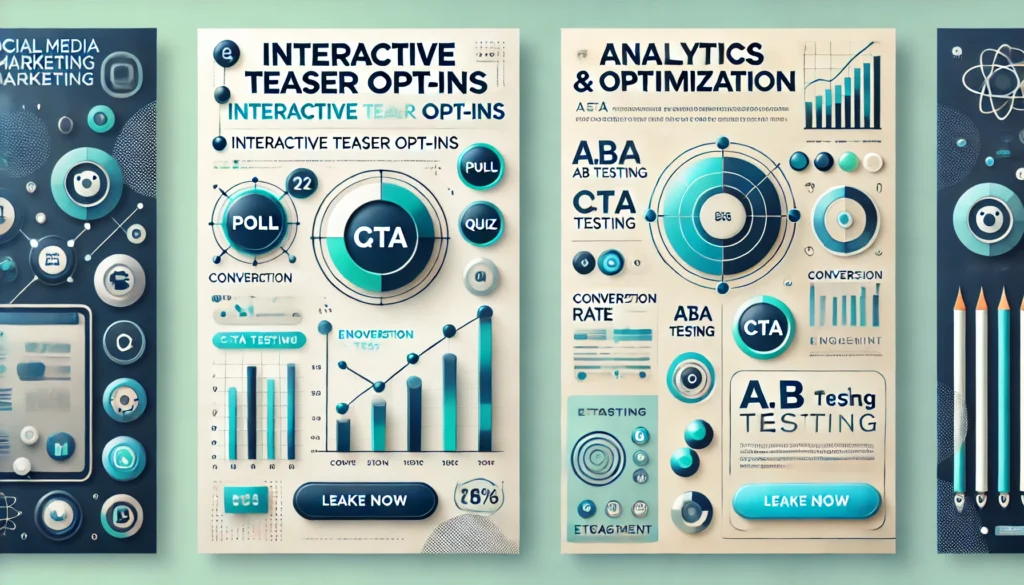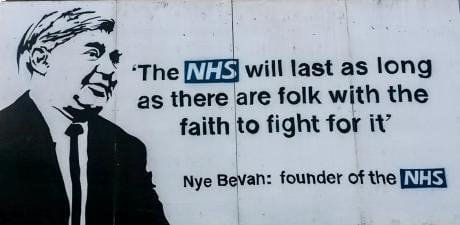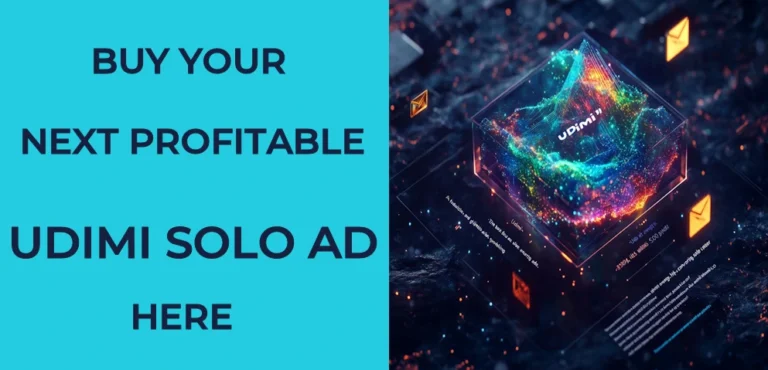Interactive Teaser Opt-Ins on Social Media.
Alright, just picture this for a second—you’re scrolling on your favorite social media, probably not even concentrating. You will sleep in a minute, maybe just… scrolling to scroll. Then, bam! Out of nowhere, a quiz shows up. It’s not something serious, but, like, one of those silly ones that sort of dares you to click. You’re not planning on it, but there you are. Tapping away, answering all kinds of questions you know you don’t care about. It’s weird, right? It’s not that you’re dying to know the answer. It’s more like, “Well, why not?” You’re already there. It’s like… when you’re at the mall and somebody’s handing out samples—you’re not gonna buy the whole thing, but a taste can’t hurt. And for some reason, brands have caught onto this. Clearly, they’ve figured out that people like us, with ten-second attention spans, are gonna be all over these little teasers. Honestly, it’s everywhere now, all over social media. And, unsurprisingly, it’s working. So today, I am going to explore why they are taking over social media and, more importantly, how you can capitalize on this. Interactive teaser opt-ins on social media can be game changers when done correctly
Table of contents
The Best Internet Marketing Training.

Understanding Interactive Teaser Opt-Ins
Interactive teaser opt-ins transform how businesses engage with their audience on social platforms. These clever snippets create curiosity, drawing users in by promising a taste of what’s to come. By having users interact — answering a question or playing a game — brands manage to capture attention and encourage deeper exploration. Let’s break down what makes these opt-ins tick.
What is an Interactive Teaser Opt-In?
Interactive teaser opt-ins are short, sharp, engaging previews that entice users to take action, often by sharing or subscribing to further content. Think of them as the trailers of the online content world. They quickly intrigue users with a promise of more, often using tools like quizzes, polls, or short videos. For example:
- A poll asking for opinions on a hot topic related to your content.
- A quiz that unlocks additional tips or tricks once completed.
- A short video with just enough information to make viewers want the full story.
These elements stimulate the audience’s curiosity and encourage them to engage more deeply with your content.
Thanks for that great question Matteo, my answer is not going to be short but I hope it answers your…
Hi there! This was a fantastic read—I truly appreciate the insights. Marketing has always been a passion of mine, and…
Great questions, Scott! If you’re an affiliate marketer building out your site, solo ads can be a solid way to…
That’s a sharp observation—perfection can sometimes feel too staged, almost robotic. People connect with authenticity, not just a highlight reel…
In this article, you have provided essential information on protecting one’s online reputation. I agree that enhancing the positives and…
Benefits of Using Interactive Teaser Opt-Ins
- Increased Engagement: By offering an enticing taste of what’s to come, you captivate your audience’s attention. Engagement means more likes, shares, and comments, which can drive organic reach and visibility.
- Higher Conversion Rates: Once an audience is hooked, they are more likely to subscribe, register, and/or purchase. A well-crafted teaser can lead potential customers directly into your sales funnel.
- Enhanced Audience Insights: Interactivity gives you a peek into your audience’s preferences and behavior. Polls and quizzes can reveal much about your followers, allowing you to tailor content and marketing strategies to better fit their needs.
Interactive teaser opt-ins are a powerful tool in the social media marketer’s kit. By understanding their mechanics and benefits, you can create compelling content that stands out in an attention-deficit environment.
Choosing the Right Platform for Opt-Ins
Harnessing the power of social media for interactive teaser opt-ins can transform your audience into a community of eager participants. Each platform offers unique tools that can drive engagement and increase your subscriber count. It’s all about picking the right fit for your strategy. Whether you’re catching attention with Facebook Lead Ads or boosting interaction through Instagram Stories, understanding these options will help tailor your approach. Let’s take a closer look at what each platform can offer.
Facebook Opt-In Strategies
Facebook is a treasure trove for opt-in opportunities. Its features like Lead Ads simplify the process of capturing information from users. These ads allow you to collect contact data without users having to leave the platform. It’s like casting a net that hits just the right spot.
- Interactive Polls: These are a great way to probe your audience’s interests. Ask simple questions that relate to your offers and watch engagement levels rise. Polls can double as market research tools, giving you insight into what your followers really want.
Put simply, Facebook provides robust tools that can turn passing interest into practical data, making it easier to convert curiosity into clicks.
“Social media is about sociology and psychology more than technology.”
Brian Solis
Instagram Engagement Tools
Instagram is a visual wonderland where creativity reigns supreme. The platform’s unique features like Stories provide ample opportunity for interaction:
- Stories: Use these 15-second snippets to preview content in a way that’s engaging and visually appealing. Think of them as mini-trailers that leave your audience wanting more.
- Polls and Quizzes: Engaging your followers with a short quiz or poll can be both fun and informative. It’s like inviting them into a conversation where their opinion shapes the narrative. The interactive nature of these tools can enhance user experience and foster a sense of community.
Here, your challenge is to craft snippets that intrigue and engage, tempting viewers to swipe up and learn more.
Utilizing Twitter for Teaser Opt-Ins
Twitter is all about brevity and immediate impact, which makes it a great arena for teaser opt-ins. With a limit on character count, messages need to be concise yet compelling:
- Twitter Polls: These are a fantastic way to engage followers quickly. They create opportunities for feedback while generating interest in your content.
- Hashtags: Use them strategically to increase visibility. A well-placed hashtag can link your teaser to wider conversations, drawing in users who are interested in related topics. Think of hashtags as breadcrumbs leading back to your main content.
By maximizing these tools, Twitter can act as a launching pad for more in-depth engagement, turning a succinct teaser into a dialogue.

Crafting Compelling Teaser Content
Creating enticing teaser content is crucial for drawing your audience in and encouraging them to opt-in for more. It’s like setting an anuse bouche on the table—you give just enough to whet their appetite but leave them hungry for a full meal. The right teaser makes your audience eager to see what’s next, turning casual viewers into engaged participants.
Elements of an Engaging Teaser
Every successful teaser has key elements that work together to grab attention and spark interest. Here’s what your teaser needs:
- Visual Appeal: Start with eye-catching visuals that stand out in a busy social feed. This could be a striking image, a crisp graphic, or a short video loop. The goal is to stop viewers in their tracks.
- Clear Messaging: Your message should be concise and impactful. Ask yourself, what do you want your audience to know, feel, or do? Communicate this in a straightforward manner, leaving no room for ambiguity.
- Strong Calls to Action (CTA): Every teaser should end with a compelling CTA. Whether it’s “Learn More,” “Sign Up,” or “Watch Now,” make sure it’s direct and instructs the user on what to do next. The CTA is the bridge from curiosity to action.
Using Visuals and Videos Effectively
Visual content is more than decoration—it’s a tool to make connections and drive actions. Here’s how you can use it:
- Catch the Eye with Color and Motion: Vibrant colors and dynamic elements can make your teaser pop. Use these strategically to draw attention where you want it most. Think of how a flickering flame invites a closer look, demanding attention through its movement.
- Tell Stories through Videos: Videos offer an opportunity to create emotional connections in seconds. A short, engaging video can convey more than paragraphs of text—it’s like capturing lightning in a bottle. Let the visuals do the storytelling, making complex ideas digestible at a glance.
- Platforms Matter: Consider where your content will live. Instagram loves rich visuals, while platforms like Twitter thrive on concise messaging. Tailor your content to fit the norms and expectations of your chosen platform, ensuring seamless integration to maximize impact.
Crafting teasers that work involves more than just assembling pretty pictures and catchy phrases. It’s about understanding what drives engagement and using that knowledge to make your audience part of the conversation. Use visuals and videos not just to enhance but to immerse, creating a teaser that is more than just a mere preview.
Implementing Interactive Features
Implementing interactive features in your teaser opt-ins can be like adding fuel to a fire, igniting curiosity and engagement. When you give your audience a chance to participate, you turn passive observations into active involvement. Let’s explore how to effectively incorporate these interactive elements.
Incorporating Quizzes and Polls
Quizzes and polls are like secret weapons in your social media toolkit. They are engaging, informative, and provide insights into your audience’s preferences.
Tools and Methods:
- Quiz Platforms: Utilize tools like Quizlet or Typeform to create quick, engaging quizzes. These platforms offer templates that can be tailored to fit your brand’s voice and style.
- Social Media Features: Use built-in features on platforms like Instagram or Twitter to create polls. On Instagram, you can add a poll sticker to your story, allowing followers to vote with a simple tap.
- Content Integration: Tie quizzes and polls to relevant content. For example, if you’re promoting a new product, create a quiz that helps users discover which product variant suits them best. This can lead to organic sharing as users naturally want to share results with others.
Using Countdown Timers and Scarcity Techniques
Countdown timers and scarcity techniques inject urgency into your opt-ins. They create a sense of “now or never,” prompting immediate action.
Creating Urgency:
- Countdown Timers: These are effective in building anticipation. Platforms like Convertkit or Mailchimp allow you to incorporate timers directly into your emails or landing pages. They visually communicate time sensitivity.
- Limited-Time Offers: Coupling countdown timers with limited-time offers can increase urgency. Use phrases like “Only 12 hours left!” to spark immediate interest and drive sign-ups.
- Visual Indicators: Use graphics to show scarcity, such as a progress bar indicating how many spots are left. This visual cue can nudge users towards making quick decisions.
Interactive features like quizzes, polls, countdowns, and scarcity elements don’t just entertain—they compel action. By making your audience part of the process, you’re not only enhancing engagement but also fostering deeper connections.
Legal and Ethical Considerations
When creating interactive teaser opt-ins on social platforms, it’s crucial to consider the legal and ethical frameworks that govern data privacy. These considerations protect both your business and your users. Striking the right balance between innovation and compliance can be challenging, yet it’s necessary to maintain trust and avoid potential penalties. Let’s explore the key elements you need to know.
Understanding GDPR and CCPA
Navigating data protection regulations like the GDPR and CCPA can feel like walking through a legal minefield. But don’t worry; these laws aim to safeguard user privacy, ensuring that companies handle personal data responsibly.
The General Data Protection Regulation (GDPR) is a regulation in the EU that sets strict guidelines for collecting and processing personal data. It emphasizes transparency, giving users more control over their information. You must get clear consent before collecting data, explain how it’s used, and provide ways for users to access or delete their data.
The California Consumer Privacy Act (CCPA) is similar, focusing on the rights of California residents. It requires businesses to disclose what data they collect and allows consumers to opt out of data selling. Failing to comply with these can lead to hefty fines, so understanding these rules is crucial for your global strategy.
Best Practices for Consent and Data Collection
Handling data ethically isn’t just about ticking boxes; it’s about building trust with your audience. Here’s how to ensure your practices align with legal standards while also respecting your users’ expectations:
- Transparent Communication: Be upfront about why you need data. Use plain language to explain how you’ll use and protect it. No one likes surprises, especially hidden in terms and conditions.
- Explicit Consent: Don’t assume users agree automatically. Use opt-in forms or checkboxes that require a clear action, like ticking a box before submission. Avoid pre-checked boxes, as they can imply consent without a user actively agreeing.
- Streamlined Access: Give users simple methods to review, modify, or delete their data. This might mean offering a dedicated settings page on your website or app.
- Regular Audits: Conduct regular audits of your data practices to ensure ongoing compliance with the latest regulations. This proactive approach can prevent issues before they arise.
By implementing these best practices, you create an environment where users feel secure, enhancing their willingness to engage with your content. After all, transparency and respect are key ingredients in building lasting relationships.
Analyzing and Optimizing Your Opt-In Campaigns
Mastering the art of interactive teaser opt-ins is just the start. Truly elevating your strategy involves meticulous analysis and optimization of your campaigns. By understanding the nuances of your audience’s reactions, you pave the way for improving engagement and conversion rates. Let’s break down how you can dive into this analytical process.
Key Metrics to Track
Success in opt-in campaigns is largely about the numbers. Several key metrics paint a picture of how effective your efforts are:
- Conversion Rates: This tells you how many users take the desired action after interacting with your teaser. A high conversion rate indicates that your teaser is compelling. Keep analyzing which elements trigger the best responses.
- Engagement Levels: This includes likes, shares, comments, and any other form of interaction. Engagement metrics are crucial as they show how your audience is connecting with the content emotionally and intellectually.
- Audience Demographics: Understanding who your audience is—age, gender, location—helps tailor teasers that resonate. Demographic insights allow you to craft personalized campaigns that cater to the unique preferences of different segments.
Tracking these metrics isn’t just about gathering data. It’s about gaining insights that lead to actionable changes and smarter decisions. Want to improve your strategy? Harness the power of these metrics to see what actually works.
A/B Testing Your Teaser Opt-Ins
If you want to optimize your opt-ins, nothing beats A/B testing. This process involves tweaking small elements of your campaigns to see what resonates best with your audience.
How does it work? You create two versions of the same opt-in, changing just one element to test—like the headline, image, or call-to-action.
- Testing Variations: For example, change the color of a call-to-action button from blue to green. Run both variations simultaneously to see which one gets more clicks.
- Benefits of A/B Testing: This method gives you clear evidence of what works and what flops. It allows you to make data-driven decisions rather than relying on gut feelings. Plus, you’re continuously learning about your audience’s preferences.
- Iterative Improvement: Testing isn’t a one-off task. It’s a continuous loop. Always be testing and tweaking. Small changes can lead to big improvements over time.
Think of A/B testing as your campaign’s fitness routine. Regular testing keeps your strategies in peak condition, ready to outperform and outshine the competition. Who doesn’t want results that are backed by actual data?
Conclusion to Interactive Teaser Opt-Ins on Social Media.
Interactive teaser opt-ins on social media are absolutely your ticket to truly supercharging social media engagement. They’re not just about capturing attention; instead, they’re about skillfully converting curiosity into dedicated followers. With quizzes, polls, countdowns, and well-crafted CTAs, you can significantly enhance your audience’s experience while deepening connections. Now’s the time to proactively put these strategies into action. Start small, experiment across different platforms, and carefully note what resonates best with your audience. Key metrics like conversion rates and engagement levels will help guide your adjustments and allow you to refine your approach. So, what’s your next step? Dive confidently into creating a teaser that embodies your brand’s vibe and watch as your community steadily grows. Embrace the powerful potential of interactive content to transform your social channels into dynamic spaces for engagement. Share your progress and any insights that work well for you in the comments. Let’s all learn from each other and keep this momentum thriving.








As a blogger exploring this concept, the potential to enhance reader interaction through interactive teaser opt-ins is intriguing. Integrating such elements could transform passive readers into active participants, fostering a more dynamic and engaged community. However, questions arise regarding the implementation and effectiveness of these strategies. What types of interactive content resonate most with diverse audiences? How can one balance the line between engagement and gimmickry to maintain authenticity? Could the incorporation of these opt-ins inadvertently alienate readers who prefer traditional content consumption? These considerations are crucial for bloggers aiming to adopt this approach without compromising their brand integrity. Is it possible to seamlessly integrate interactive teaser opt-ins into existing content without disrupting the reader’s experience?
Interactive teaser opt-ins on social media hold transformative potential for bloggers looking to build stronger connections with their audiences. These tools, such as polls, quizzes, and time-sensitive offers, create an environment where users feel involved rather than simply being spectators. For instance, if a blogger focused on travel adds a “Find Your Perfect Destination” quiz to their content, it could engage readers on a personal level while subtly guiding them to explore related posts or affiliate links. This strategy not only enriches user experience but also collects valuable data about audience preferences, which can be used to tailor future content. The real challenge, however, is crafting these opt-ins in a way that feels organic, ensuring they add value rather than coming across as intrusive marketing tactics. A well-thought-out opt-in can foster trust, build loyalty, and even lead to increased shares and followers.
For bloggers new to this concept, the key lies in balancing interactivity with authenticity. It’s easy to fall into the trap of creating flashy but shallow content that might generate clicks but leaves readers feeling unfulfilled. A food blogger, for instance, could use a poll like “Which holiday dessert should I bake next?” to involve their audience in content creation while promoting their upcoming recipe post. However, over-reliance on such techniques might alienate readers who come to the blog for more in-depth storytelling or expert insights. The integration must feel seamless, aligning with the blogger’s tone and brand identity. As a newcomer to this strategy, the question remains: how can one experiment with interactive teaser opt-ins while ensuring that the core essence of their blog remains intact?
This article provides a comprehensive guide to leveraging interactive teaser opt-ins on social media, which is a great way to boost engagementand conversions.
I appreciate the practical examples and the emphasis on understanding audience behavior. It’s clear that creating compelling content is key, and the tips on using visuals and interactive elements are particularly useful.
One question I have is about measuring success—how do you balance quantitative metrics like conversion rates with qualitative feedback from your audience?
It would be interesting to hear more about that. Great read!
Balancing quantitative metrics and qualitative feedback is essential when measuring the success of interactive teaser opt-ins on social media. While conversion rates are a foundational metric, they’re just one piece of the puzzle. To truly understand performance, you need to look at additional data points. Metrics like click-through rates (CTR), dwell time, bounce rates, and retention figures can provide valuable insights. For example, high CTR might show that your teaser content is intriguing, but if bounce rates are also high, it could indicate a disconnect between user expectations and the landing page experience. Tools like Google Analytics or platform-specific analytics (e.g., Instagram Insights) can help track and analyze these behaviors effectively.
At the same time, qualitative feedback brings depth to the numbers. Surveys and polls can help you understand why users engaged—or didn’t engage—with your teaser. For instance, a short follow-up survey could ask what caught their attention or whether they found the experience clear and engaging. Social listening is another powerful way to gather this feedback. Monitoring comments, direct messages, and broader discussions around your campaign often reveals sentiments and expectations that numbers alone can’t capture. Enthusiastic comments or recurring questions about the teaser can signal strong audience interest, while critiques may point to areas for improvement.
The key to success is finding a balance between these approaches. Quantitative data is great for spotting trends and patterns, such as a spike in engagement after tweaking visuals or call-to-action wording. Qualitative data, on the other hand, humanizes those metrics. If a teaser garners high engagement but low conversions, user feedback might uncover issues with content relevance or clarity. Together, these insights allow you to iteratively improve your campaigns. For example, if a quiz teaser on Instagram shows a significant drop-off after the first question, analyzing comments or feedback might reveal that users found the quiz too lengthy or confusing, which you can adjust for future campaigns.
By combining hard data with audience voices, you create a more holistic picture of success. Each campaign becomes an opportunity to learn, refine, and better align with audience needs. Over time, this balanced approach not only boosts engagement but also fosters deeper connections with your audience. If you’d like specific tools or strategies for streamlining this process, feel free to ask!
Wow thanks for a super comprehensive article on creating captivating teasers on social media. It taps into human psychology and what now appears to be a reduction of our attention spans. We want instant results and information ASAP. I catch the train to and from work and the number of people I see watching short video reel after reel is mind blowing. It’s addictive. I’ve got to give this strategy a try.
Thank you for sharing that observation! You’re absolutely right—our attention spans are shrinking, and as marketers, we need to adapt to this fast-paced, scroll-happy audience. The behavior you’ve described—people glued to short-form content during their commutes—is a perfect example of why creating captivating teasers on social media is so effective. These teasers tap into the psychology of curiosity and the dopamine hit we get from instant gratification, making them irresistible.
From an SEO and marketing perspective, this trend is a goldmine. Short, engaging teasers act as the perfect “hook” to drive traffic and encourage further interaction. The key here is to pair these teasers with optimized landing pages or content that delivers on the promise. For example, if your teaser is a quick reel that poses a question or highlights a problem, your follow-up content should provide immediate, valuable solutions—whether that’s a blog post, an in-depth video, or a product demo.
You mentioned it’s addictive—and that’s where strategic design comes into play. Platforms like TikTok and Instagram thrive on this behavioral loop, which we can use to our advantage. By understanding when and how your audience consumes content (e.g., commuters scrolling through reels), you can create campaigns tailored to their habits. Posting at peak commute times, using quick, visually striking videos, and adding compelling CTAs like “Learn More” or “Swipe Up” can turn passive viewers into active participants in your funnel.
The good news? You don’t need a big budget to start. Even simple, authentic, behind-the-scenes snippets or polls can serve as teasers. Just ensure your content is aligned with your audience’s pain points and aspirations. Then track engagement and tweak your approach based on real-time feedback.
It’s exciting that you’re ready to try this! Start small, experiment, and keep your eyes on engagement metrics and audience reactions. With consistency and a touch of creativity, this strategy could transform your social media game. If you’d like specific ideas or tools to get started, let me know—I’d be happy to help!
Reply
I recently stumbled upon your article titled “Interactive Teaser Opt-Ins on Social Media,” which delves into strategies for enhancing audience engagement and lead generation through interactive content. The piece emphasizes the effectiveness of captivating your audience with simple, enjoyable actions. I am a complete newbie to blogging. I only joined Wealthy Affiliates a few weeks ago, and I always read your articles. I found it very useful your point about short attention spans.
As a novice blogger, I’m curious about the specific types of interactive teaser opt-ins that have proven successful on social media platforms. Additionally, I’m interested in understanding the potential challenges or pitfalls one might encounter when implementing these strategies.
As a seasoned SEO expert and blogger, I can confidently say that the use of interactive teaser opt-ins on social media is a game-changer for audience engagement and lead generation. It’s not just about collecting emails or clicks; it’s about creating a relationship with your audience, leveraging curiosity, and delivering value in a way that feels natural and exciting.
### Proven Types of Interactive Teaser Opt-Ins
1. **Quizzes and Personality Tests**: These are incredibly effective because people love learning about themselves. For example, a quiz like “What’s Your Productivity Archetype?” can lead to highly targeted opt-ins where users sign up to receive detailed results or related resources.
2. **Polls and Surveys**: Simple polls on platforms like Instagram Stories or Twitter not only engage users but also give you valuable insights about your audience preferences. For instance, a clothing brand could ask, “Which look do you prefer for winter?” and then offer a downloadable style guide as a follow-up opt-in.
3. **Countdowns and Early Access Offers**: Adding a sense of urgency works wonders. A teaser like, “Get early access to our upcoming webinar—sign up before the countdown ends!” creates a fear of missing out (FOMO) and drives faster conversions.
4. **Gamified Experiences**: Things like scratch cards, spin-the-wheel offers, or interactive infographics that reveal tips or discounts in exchange for an email are also crowd-pleasers. They add an element of fun that encourages participation.
5. **Exclusive Previews**: Sharing snippets of upcoming content—like the first chapter of an eBook or an exclusive video preview—teases the audience just enough to leave them wanting more, prompting them to opt-in for the full experience.
### Challenges and Pitfalls to Watch Out For
While these strategies are powerful, they aren’t foolproof. Here are some common pitfalls to avoid:
1. **Overcomplication**: It’s easy to get carried away with design and mechanics, but if your teaser opt-in is too confusing or has a high barrier to entry (e.g., multiple steps, unclear instructions), you’ll lose potential leads. Keep it intuitive.
2. **Lack of Value Clarity**: If users don’t understand what they’re getting or why they should care, they won’t bother. For instance, if you offer a downloadable checklist, make sure it’s framed as a solution to a specific problem your audience faces.
3. **Mismatch with Platform**: Tailor your opt-ins to the social media platform. A strategy that works on Instagram, such as a visually engaging story poll, might not translate well to LinkedIn, where professionalism and in-depth insights are preferred.
4. **Underestimating Follow-Up**: The opt-in is only the beginning. If your follow-up emails or lead nurturing campaigns aren’t compelling, you risk losing the momentum you’ve built. Ensure you deliver on your promises and offer additional value after the opt-in.
5. **Compliance Issues**: Always be mindful of data privacy laws like GDPR or CCPA. Clearly inform users how their data will be used, and avoid sneaky practices like auto-subscription without consent.
### Pro Tips for Success
1. **A/B Test Your Opt-Ins**: Run experiments to see which teasers get the best response. Test variations in language, visuals, and offers to refine your approach.
2. **Leverage Analytics**: Track performance metrics like click-through rates, conversion rates, and engagement levels. Use these insights to optimize future campaigns.
3. **Add a Personal Touch**: Tailor the experience. Use their quiz results, poll answers, or preferences to personalize follow-up messages. Personalized emails have much higher open rates.
4. **Collaborate with Influencers**: Partner with influencers in your niche to amplify your opt-ins. An influencer showcasing your interactive content can boost trust and reach.
### Answers to Your Questions
1. **Proven Opt-In Strategies**: Some proven examples include “Swipe-Up” polls on Instagram for lead magnets, Twitter threads that end with a link to a gated resource, and TikTok videos teasing exclusive tips available through sign-up.
2. **Challenges to Consider**: The main challenges are keeping your opt-in process seamless and ensuring that what you offer resonates deeply with your target audience. Monitor for drop-offs during the process and be ready to tweak based on feedback.
Interactive teaser opt-ins, when done right, can be a cornerstone of your content strategy. They combine engagement with lead capture in a way that feels organic rather than pushy, aligning perfectly with today’s audience-first marketing approach.